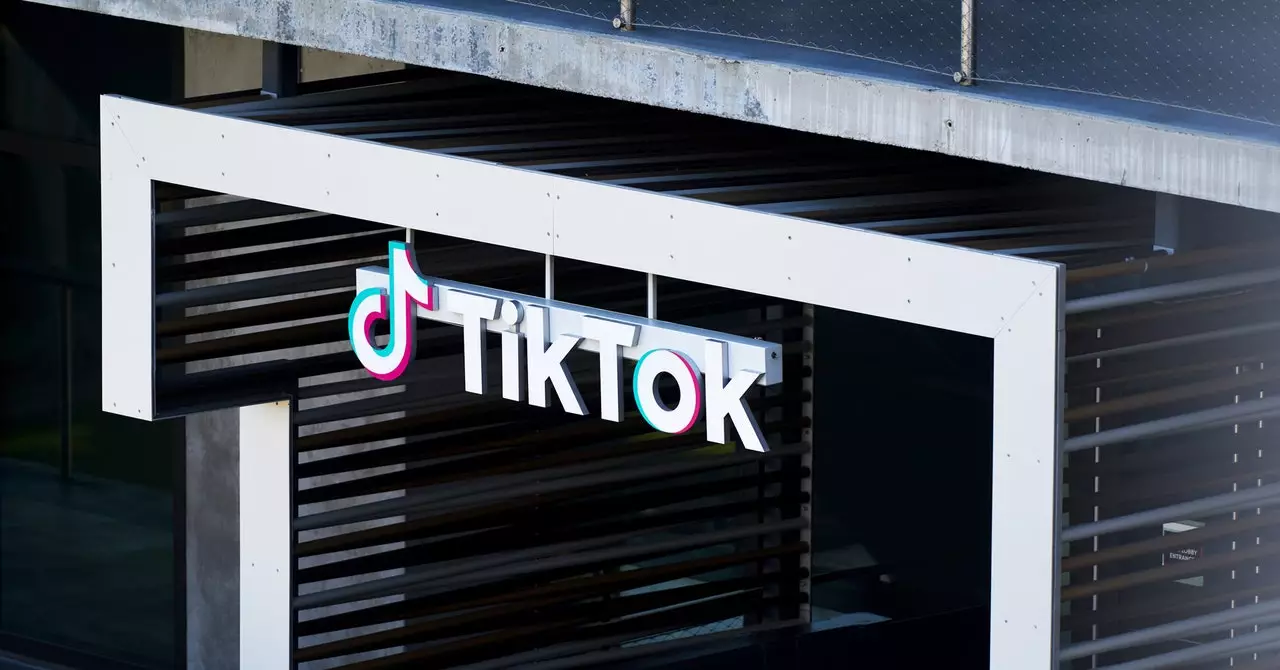TikTok, the immensely popular social media platform, finds itself at a crossroads, with the potential outcome of the upcoming U.S. elections posing significant implications for its operations. As conversations about political strategies and regulations swirl around the app, a surprising sentiment among TikTok employees has emerged: a disengagement from the political narrative driving their company’s fate. This article delves into how and why TikTok employees appear to be navigating this uncertainty with relative calmness, raising questions about the tech industry’s ability to adapt to evolving political landscapes.
Interestingly, despite the high stakes tied to TikTok’s potential ban—a scenario that sends ripples of concern through the tech industry—many employees at the company’s U.S. divisions seem detached from the looming political specter. A product manager based in San Jose shared that his pre-employment anxieties surrounding a potential TikTok ban have dissipated, reflecting a broader sentiment within the company. Employees often approach their daily tasks without the looming dread of regulatory repercussions. This emotional disconnection appears to stem from a collective belief that individual agency is limited in the grander scheme of corporate politics.
The culture of disengagement permeating TikTok suggests that employees have either adjusted to what they perceive as an inevitable reality or have actively chosen to focus on their immediate work rather than external pressures. Conversations about the platform’s future—constrained by low-profile discussions on the app’s political controversy—rarely happen among the employees themselves. Such avoidance can be indicative of a workplace atmosphere where distraction management prevails over proactive involvement in corporate fate discussions.
Further analysis reveals that while TikTok employees overlook the political implications of their company, news about the potential ban seems to circulate predominantly among international colleagues or friends outside ByteDance. Their indifference may also reflect a cultural disconnect where employees prioritize focus on operational responsibilities rather than tethering their roles to the whims of political institutions. This circumstance raises significant questions about communication within global companies like TikTok, where different branches may face varying degrees of external pressure and influence from their respective political economies.
Despite employees’ disengagement, external debates regarding TikTok’s viability continue to intensify. Legislation such as the Protecting Americans from Foreign Adversary Controlled Applications Act (PAFACA) raises flags for corporate governance, but TikTok’s internal atmosphere remains relatively calm. Political figures like Kamala Harris, whose potential presidency could affect TikTok’s operational freedoms, keep their cards hidden, leaving employees uncertain about what policies could arise if elected. This ambiguous scenario complicates TikTok’s messaging and brand image in the U.S. market.
Surprisingly, amidst the turmoil, even past U.S. presidents have adjusted their stances on TikTok. Donald Trump’s recent equivocation regarding the app—once viewed as a possible target for a ban—adds another layer of complexity to the corporate climate. His campaign rhetoric, encouraging supporters to vote for him to save TikTok, is drawing lined connections with economic strategy by leveraging political outreach to tech users. Still, this inconsistency raises skepticism among employees about whether Trump’s reassurances hold substance or simply serve as political theater.
As the election draws near and more speculation mounts regarding potential outcomes, TikTok employees remain in a limbo—straddling between seeking stability within their roles while grappling with the unpredictable nature of political influence. This dynamic encapsulates a broader narrative within tech firms where personnel focus on innovation and product development while external political tides threaten to reshape the viability of the business model itself.
In sum, TikTok employees exemplify an intriguing case study in corporate resilience amid political uncertainty. Their indifference may signify a coping strategy, but it simultaneously surfaces concerns regarding internal communication and awareness of influential external forces. As the U.S. elections approach and discussions concerning TikTok’s fate intensify, the majority of its staff remain focused on daily tasks, effectively sidelining the political narratives that could alter their operational landscape. TikTok serves as a microcosm of the broader tech landscape, where employees prioritize stability and continuity even as outside pressures loom ever larger.

